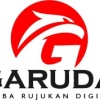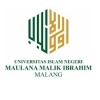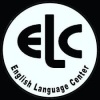REVEALING THE CHALLENGES AND PRACTICAL WAYS IN TEACHING WRITING ONLINE
Abstract
The present study aims at examining the challenges confronted by the lecturers and the practical ways in teaching writing online. A qualitative research method was applied to get a deep understanding of the objective of this study. The data were collected through interviews and documentation. In obtaining the data, three English lecturers of UIN Maulana Malik Ibrahim Malang were interviewed by using a semi-structured interview. In addition, the supporting documents related to teaching writing online, such as teaching journals, teaching documents, and students’ portfolios were also gathered to enrich the data of the present study. The findings revealed that the challenges faced by the lecturers in teaching writing online include the students’ problems in internet connections and the difficulty in maintaining the students' writing process. It was difficult for the lecturers to ensure the originality of students' works; thus, the lecturers were unable to assess the actual student’s ability in writing. However, the lecturers did some practical ways to overcome the challenges in teaching writing online. Firstly, the lecturers applied synchronous and asynchronous meetings in the process of teaching and learning by utilizing some Learning Management Systems as online learning media. Secondly, the lecturers used Turnitin to check the originality of students’ works. Finally, the lecturers applied peer feedback to improve students writing skills.
Full Text:
PDFReferences
Ariesta, M.L.T.C. (2021). Teaching Writing Online Strategies During Covid-19 Pandemic. Language-Edu, Journal of English teaching and Learning, 10(5).
Biber, D. et. al. (1999). Longman Grammar of Spoken and Written English. Harlow, Essex: Pearson.
Burns, A. and Siegel, J. (2018). International Perspectives on Teaching the four skills in ELT. Switzerland: Springer Nature.
Creswell, J. W. (2014). Research Design, Qualitative, Quantitative, and Mixed-Methods Approaches (4th ed). Thousand Oaks, CA: SAGE Publications, Inc.
Dixon, D. (1986). Teaching Composition to Large Classes. English Teaching Forum, 24(3), 2-5 & 10.
Halgamuge MN. (2017). The Use and Analysis of Anti-Plagiarism Software: Turnitin Tool for Formative Assessment and Feedback. Computer Applications in Engineering Education, 25(6), 895-909. https://doi.org/10.1002/cae.21842
Harmer, J. (2004). How To Teach Writing. England. Oxford: Person Education Limited.
Hidayati, K. H. (2018). Teaching Writing to EFL Learners: an Investigation of Challenges Confronted by Indonesian Lecturers. LANGKAWI: Journal of The Association for Arabic and English, 4(1), 21-31. http://dx.doi.org/10.31332/lkw.v4i1.772.
Hikmatiar, H. et al. (2020). Utilization of Google Classroom-Based Learning Management System in Learning. Jurnal Pendidikan Fisika, 8(1), 78-86. DOI: 10.26618/jpf.v8i1.3019.
Hyland, K & Hyland, F. (2006). Feedback on Second Language Students’ Writing. Language Teaching, 39(2), 83-101. DOI: http://dx.doi.org/10.1017/S0261444806003399.
McCarthy, M., & Carter, R. (1994). Language as Discourse. London: Longman.
Ngoc, N. H. (2021). Challenges in Teaching Academic Writing Skills in EFL Classroom. International Journal of Progressive Sciences and Technologies, 26(1), 503-508.
http://dx.doi.org/10.52155/ijpsat.v26.1.3038.
Nunan, D. (2000). Language Teaching Methodology: A textbook for Teachers. Edinburgh: Pearson Education.
Pica, T. (1986). An interactional approach to the teaching of writing. English Teaching Forum, 24(3), 6-10.
Richards, J.C., & Renandya, W.A. (2002). Methodology in Language Teaching. Cambridge: Cambridge University Press.
Zainuddin, M. (2004). The Effect of Giving Feedback to Students' Writing. TEFLIN Journal, 15(2), 117-126.
DOI: https://doi.org/10.18860/jeasp.v5i1.16581
Refbacks
- There are currently no refbacks.

This work is licensed under a Creative Commons Attribution-ShareAlike 4.0 International License.







Editorial Office:
Pusat Pengembangan Bahasa
Program Khusus Pengembangan Bahasa Inggris (PKPBI)
Universitas Islam Negeri Maulana Malik Ibrahim Malang
Gedung C lantai 1
Jl. Gajayana No 50 Kota Malang, Jawa Timur, Indonesia
Kode Pos 65144, Telp/Fax : (0341) 570872
Email: jeasp@uin-malang.ac.id
JEASP : Journal of English for Academic and Specific Purposes is licensed under a Creative Commons Attribution-ShareAlike 4.0 International











